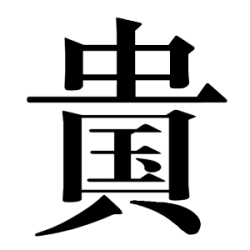“Expensive country”的版本间的差异
来自China Digital Space
| 第1行: | 第1行: | ||
贵国 (guì guó): expensive country | 贵国 (guì guó): expensive country | ||
| − | [[File:expensive country.png|250px|thumb|right|''“Expensive country.”'']] Sarcastic reference to China. Popularized because of discontent over high prices; ''gui guo'' is a country where basic needs like housing, fuel, power, and | + | [[File:expensive country.png|250px|thumb|right|''“Expensive country.”'']] Sarcastic reference to China. Popularized because of discontent over high prices; ''gui guo'' is a country where basic needs like housing, fuel, power, and health care are all too costly. |
''Gui'' is also the honorific form of “your”; ''gui guo,'' literally “your honorable country,” is often used in diplomatic speech. Using ''gui guo'' in reference to China separates the speaker from his country, in opposition to 我国 wǒ guó, “our country.” [http://chinadigitaltimes.net/2013/01/in-chinas-cyberspace-dissent-speaks-code Xiao Qiang and Perry Link explain] that in this turn of phrase, netizens imply that “the state that belongs to you rulers, not to me.” | ''Gui'' is also the honorific form of “your”; ''gui guo,'' literally “your honorable country,” is often used in diplomatic speech. Using ''gui guo'' in reference to China separates the speaker from his country, in opposition to 我国 wǒ guó, “our country.” [http://chinadigitaltimes.net/2013/01/in-chinas-cyberspace-dissent-speaks-code Xiao Qiang and Perry Link explain] that in this turn of phrase, netizens imply that “the state that belongs to you rulers, not to me.” | ||
[[Category: Grass-Mud Horse Lexicon]] | [[Category: Grass-Mud Horse Lexicon]] | ||
2014年8月29日 (五) 16:06的版本
贵国 (guì guó): expensive country
Sarcastic reference to China. Popularized because of discontent over high prices; gui guo is a country where basic needs like housing, fuel, power, and health care are all too costly.
Gui is also the honorific form of “your”; gui guo, literally “your honorable country,” is often used in diplomatic speech. Using gui guo in reference to China separates the speaker from his country, in opposition to 我国 wǒ guó, “our country.” Xiao Qiang and Perry Link explain that in this turn of phrase, netizens imply that “the state that belongs to you rulers, not to me.”





